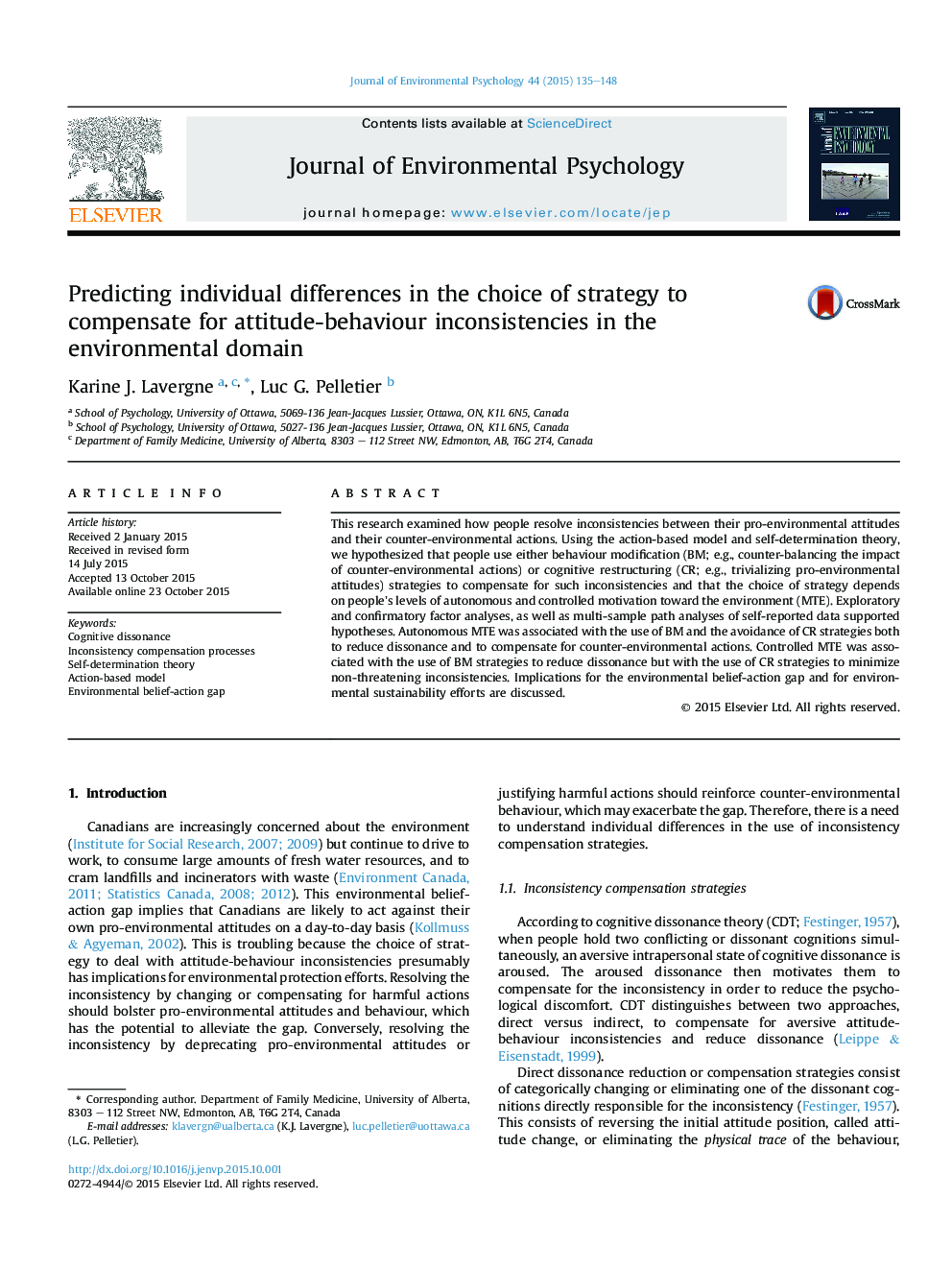| Article ID | Journal | Published Year | Pages | File Type |
|---|---|---|---|---|
| 7245721 | Journal of Environmental Psychology | 2015 | 14 Pages |
Abstract
This research examined how people resolve inconsistencies between their pro-environmental attitudes and their counter-environmental actions. Using the action-based model and self-determination theory, we hypothesized that people use either behaviour modification (BM; e.g., counter-balancing the impact of counter-environmental actions) or cognitive restructuring (CR; e.g., trivializing pro-environmental attitudes) strategies to compensate for such inconsistencies and that the choice of strategy depends on people's levels of autonomous and controlled motivation toward the environment (MTE). Exploratory and confirmatory factor analyses, as well as multi-sample path analyses of self-reported data supported hypotheses. Autonomous MTE was associated with the use of BM and the avoidance of CR strategies both to reduce dissonance and to compensate for counter-environmental actions. Controlled MTE was associated with the use of BM strategies to reduce dissonance but with the use of CR strategies to minimize non-threatening inconsistencies. Implications for the environmental belief-action gap and for environmental sustainability efforts are discussed.
Related Topics
Social Sciences and Humanities
Psychology
Applied Psychology
Authors
Karine J. Lavergne, Luc G. Pelletier,
